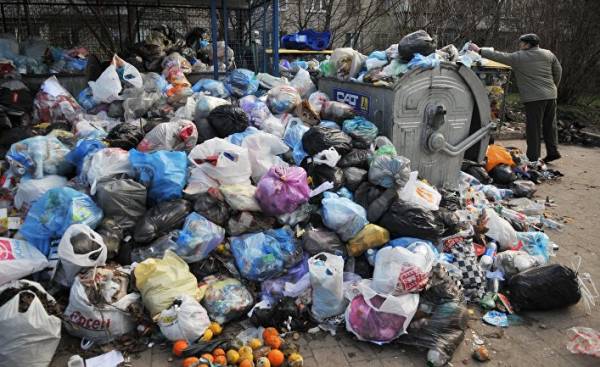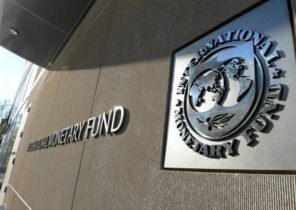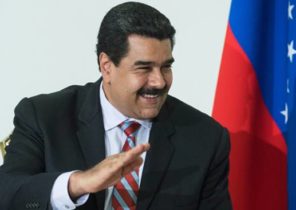
There is scarcely a better way to understand today are different than Russia and Ukraine than to compare how they have organized garbage collection. In the major cities of both countries there are problems with waste disposal. But the political problems of Russia and Ukraine are markedly different: one of them is an authoritarian state, and the other is a messy and corrupt democracy.
The former Soviet Union were not engaged in recycling or even waste incineration — when you have one sixth of the land, you have enough space where garbage can be buried or simply dumped. The practice of sorting waste, as is done in Europe (and to a lesser extent in the US), many times and without much enthusiasm I tried to enter, but refused from this idea — it didn’t take, and to follow the rules was impossible.
In Ukraine in 2013, the law on separate waste collection, but it will not do. Only 1% is collected in the country, garbage is burned and another 4% is recycled. In contrast, Sweden (which is one of the world leaders in recycling) recycles and burns 99% of its waste. According to Ukrainian business news portal delo.ua at least 4% of the territory of Ukraine allegedly occupied thousands of landfills, 6 thousand of which is organized and 30 thousand unauthorized.
In 2011, who was at that time a post of the head of the Ministry of natural resources and ecology Yuri Trutnev said that Russia from an economic point of view it is more profitable to build landfills for garbage, than to build incinerators or recycle the garbage by other means. A year later Rosprirodnadzor said that in the trash better to burn than recycle.
Russia is huge, and in many regions there is still plenty of room for landfills and landfills used for the disposal of garbage. But one of the many economic woes in Russia is the centralization: Moscow grows uncontrollably. According to the authorities of the Moscow region, who run not by the city itself and the suburbs, in the vicinity of the capital now accumulated nearly 20% of garbage of the country, and the amount of waste is growing at about 2.5% per year. 5% of garbage that is not subjected to burial, mostly burned and not processed. No wonder the people living in the vicinity of the capital, start literally the smell to feel that something is wrong.
The stench of the same in Russia and Ukraine. Both countries need to invest in technology recycling and clean landfill. But the political reaction to the miasma dramatically different.
In Ukraine, Andriy Sadovy, the popular mayor of Lviv, the largest city in the Western part of the country, which has always been configured Pro-European, is a “garbage war” with the Central Kiev authorities. Once last year during a fire at the main landfill of the city killed three rescuers of the emergency service, the city had to abandon the use of the landfill, an area of over 33 hectares. The garden appealed to the leadership of other regions with a request to accept waste from the city, but hundreds of cities declined.
Garden accused the Central government of Kiev in the “junk blockade” of the town, carried out in retaliation for the decision of his party to leave the ruling coalition in 2016. Prime Minister Vladimir Groisman denies this and accuses the Garden of incompetence and politicking. President Petro Poroshenko, a political patron Groisman, accused the mayor that he “literally filled with trash the most beautiful European city of Ukraine.”
While politicians bickered, piles of rubble foreshadowed the catastrophe. The backbone of the economy of Lviv is a tourism and outdoor largely managed to prevent the accumulation of mountains of garbage in the picturesque historic center of the city, built by the Habsburgs. But in some residential areas, the garbage not taken out for weeks, resulting in a breed of rats and the growing threat of epidemics.
Thursday was made a temporary solution: a Garden has agreed for two years to pay the regional administration, headed by an appointee Poroshenko, for the lease of land for the disposal of municipal waste. Now the Garden promises to implement the city’s Zero Waste program by Lviv and the construction of a modern plant for recycling. Will he be able to deliver on those promises, or the chance to sit in the presidential chair will be buried under piles of garbage, time will tell. Resources, opportunities and impact of the Garden is limited, even in comparison with the Central government deficit funding.
In contrast to Ukraine on the political scene in Russia, these vivid and violent events occurs. But it is President Vladimir Putin. During his last annual “direct line” with voters, held on June 15, he showed a video about the biggest dump in the Moscow region, located near the residential area of the city Balashikha. Residents appealed to the President with a request to close the landfill, complaining of constant nausea and vomiting due to emissions of gas in the fire mountains of garbage. Putin promised that “I will try to do something”.
This television promises are not vain — they always come true. The Governor of Moscow region Andrei Vorobyov immediately went to Balashikha, and promised to close the landfill by 2019. But after a week at a government meeting Putin remembered his promise. “Then listen to me, and to the sparrows heard me. During the month to close this dump,” he said.
It was closed the next day, and after four days the mayor of Moscow resigned. In less than a week the garbage dump was cleared, and now the authorities plan to build a ski slopes or extreme Park. Taken out the trash to other landfills of the region, which now also received daily tons of waste from Moscow, before coming to the site. As a result, now these dumps are working in emergency mode. According to the mayor of Mozhaisk, one of the cities that are now forced to make additional garbage to the local dump a year and a half is full. As in Lviv, it is a temporary solution. In the Moscow region, as Ukrainian cities, there are big plans for the processing of waste — including the construction of several waste incineration plants. In addition, it is planned to introduce “dvuhkonturniy” system of garbage collection, to accustom local residents to sort garbage into “dry” and “wet”. And some more complex solutions are doomed to failure.
Nor engulfed by chaos and it seems like a democratic country Ukraine nor autocratic Russia have not found a way to finally solve the problem, the origins of which goes back to their common Communist past. These countries will be able to change the situation once and for all only if the people living in them, explain why it is important to recycle. And if these people will change themselves. It all starts with simple things such as separate garbage containers for paper, plastic, glass and biological waste. When it will become a habit, as in Europe, it will become clear that the case moved from the dead point. But this requires a broad information campaign, conduct which the policy is now unlikely to finish.







